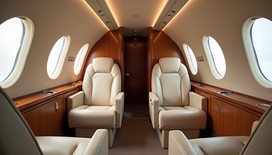Traveling developing countries safely
- Jan 8, 2018
- 3 min read
You have seen dreamy picturesque photos of your destination, or you have always wanted to go there for years. It can be very exciting to finally be able to go to such a destination, and it promises to be very enjoyable and fun. Yet there are some basics you need to cover for a successful trip
(Published, August 6th 2017, updated Jan 8th 2018)

First you need to check whether you need a visa or not, there is no rule on that, it is very random, but a quick check will tell you if you need one or not, the documents you need to provide, and how long it takes to get one. Ensure that the timelines will work out for your trip date and duration and avoid cancellations and associated fees, not to mention important trip plans. Some countries have unstable political and security situations, and you need to inform yourself on such events and realities before you embark on your trip to stay safe.
The U.S State department has travel advisories on many destinations that are pertinent and up to date for the most part, check out their resources for information and what to do and who to contact in case of emergencies.
Some destinations necessitate vaccines, and some of these take more than just one shot, sometimes over weeks. You definitely do not want to be sick in a foreign country instead of enjoying your trip. And there is no telling what the healthcare infrastructure is like over there, and whether it will be reliable if you ever get sick. Find the closest travel clinic and book an appointment at least two months prior, these can be very busy, and it is hard to book and appointment sometimes.
Providing vaccine records upon your return will avoid you the hassle of a possible quarantine, yes although rare its not uncommon. The C.D.C has good resources to inform yourself on pathogens and diseases for certain destinations.
As far as food and drink, do not assume that everything has been checked out by "the USDA." certain tourist destinations have good systems for ensuring safe food is provided to visitors, but as a rule do not assume tap water is good. A good hotel can go a long ways with safer food although you might be paying a higher price for the same thing you can get from a street vendor. Drinking bottled water takes the guess work out.
Take some medicine with you in case you have gastro-intestinal issues. Diarrhea medicine, allergy medicine etc...
Upon arrival be alert, this does not mean to the point of paranoia, but tourism is the sole source of income to a lot of people in developing countries and some people will go to great lengths to convince you to buy something or hire them as a guide and so on... Sometimes the tactics get pretty aggressive.
Another problem is pick pocketing, which is likely to happen in a developed country's train station as well as a large western metropolis airport. Have copies of your documents just in case, and make sure you safeguard them, ensure that someone back home has a copy of your itinerary and plans and contact information to reach you at your destination. Plan regular contacts back home to touch bases and let loved ones keep tabs on your progress, social media can help with this, if there is internet coverage.
Beggars are a common sight in in many places, sometimes these are professionals, and use tactics that might pray on the visitor ... Group guided tours, booking your transportation and accommodation and guides thoroughly before traveling helps, but this is easier said than done due to the quality of infrastructure...
Check your bed and bed sheets before getting in, to avoid any surprises. As a rule do not sleep on the floor unless you have to, especially in areas with reptiles and insects that might be harmful. Mosquito nets are a godsend in certain areas where mosquitoes are a big problem, especially with the potential diseases they are capable of spreading. Also, it is worth packing a hammock sometimes. Carry antibacterial soap or gel, it helps a good deal, your first aid kit might even be better. If you have any conditions or are taking medications plan your trip accordingly do not assume you will refill at the local pharmacy.
Remember that recharging your important devices might take special pluggings or adapters. Most airports have WiFi you can hook up to, at least for half an hour or more. Consider an international plan for your phone, it can be helpful where there is coverage.
Be reasonably vigilant, make informed plans and enjoy your destination...

Similar articles:
































Comments